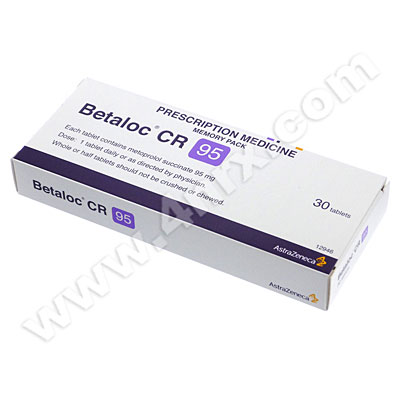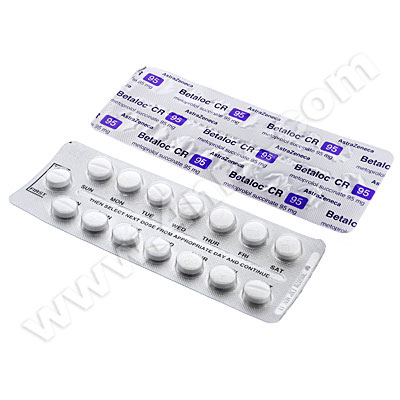 |
Home  Heart Heart  Betaloc CR (Metoprolol Succinate) Betaloc CR (Metoprolol Succinate) |
|
|||||||||
|
Betaloc CR (Metoprolol Succinate)
What is Betaloc CR (Metoprolol Succinate) used for? Betaloc CR (Metoprolol Succinate) is prescribed to patients to treat a wide range of conditions. It is used to treat heart conditions such as angina, heart failure and hypertension. Other uses include preventing migraine headaches and treating heartbeats that are irregular. This drug belongs to a class of medications known as beta blockers, which help to relax blood vessels and decrease blood pressure. How should I use Betaloc CR (Metoprolol Succinate)? Betaloc CR (Metoprolol Succinate) tablets should be taken either with meals, or straight after eating. You should not chew or crush these tablets. Swallow the tablets whole with a glass of water. The usual dose is one tablet per day, or as directed by your physician. This drug will not cure hypertension, it will only control it. Continue taking it unless told otherwise by your physician. Patients using this drug to treat chest pain and migraine should take this medicine regularly, and should not take it when symptoms occur. What are the side effects of Betaloc CR (Metoprolol Succinate)? Patients taking Betaloc CR (Metoprolol Succinate) may notice some side effects, such as:
Other serious side effects require immediate medical attention. Serious side effects include breathlessness, unusual bleeding or bruising or hallucinations. Please Note Do not stop taking this drug without first consulting your physician. Patients who suddenly stop taking this drug increase the risk of a heart attack or other serious complications. Strictly follow all instructions provided to you by your physician or pharmacist while using Betaloc CR (Metoprolol Succinate). Optimum and safe dosage can differ based on the patient and the condition being treated. As this medication may be unsafe for certain patients, it is essential you always inform your physician if you are pregnant or breastfeeding, as well as if you have any allergies, other illnesses, or ongoing health conditions, and if you are taking any other form of medication, supplements, or herbal products. Immediately seek emergency medical care if you have any allergic or hypersensitive reaction. Common signs of a reaction include hives, swelling, skin rashes, chest pains, as well as trouble breathing or swallowing. 

|
|||||||||||||||||